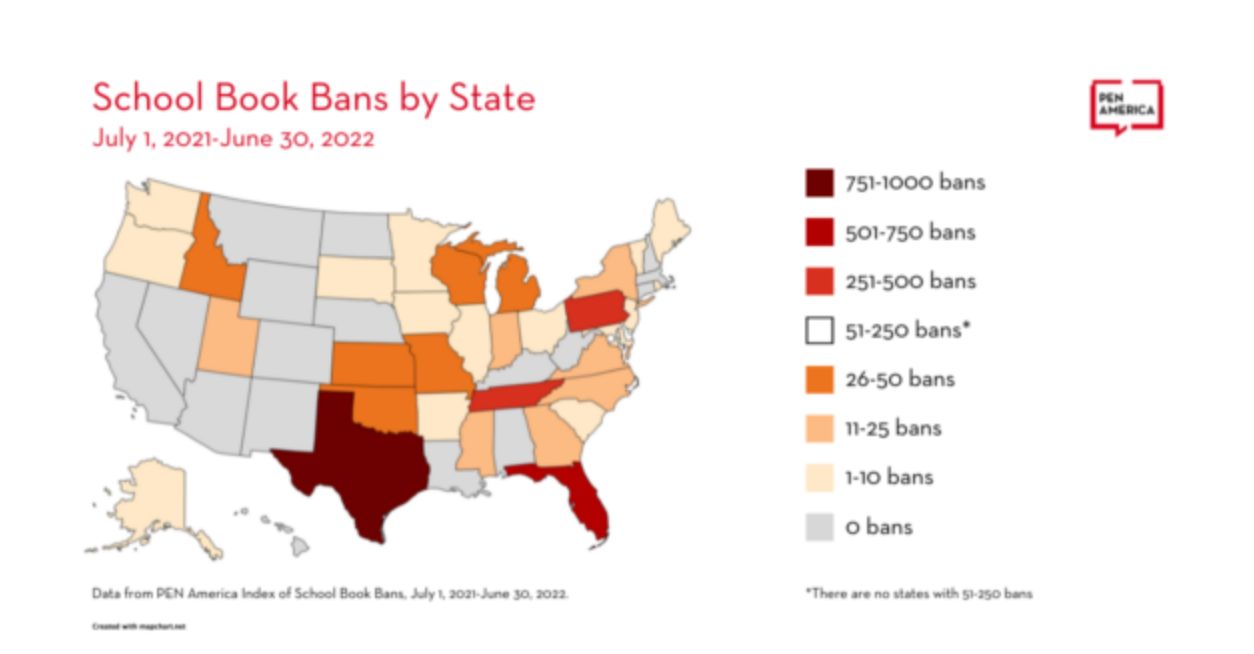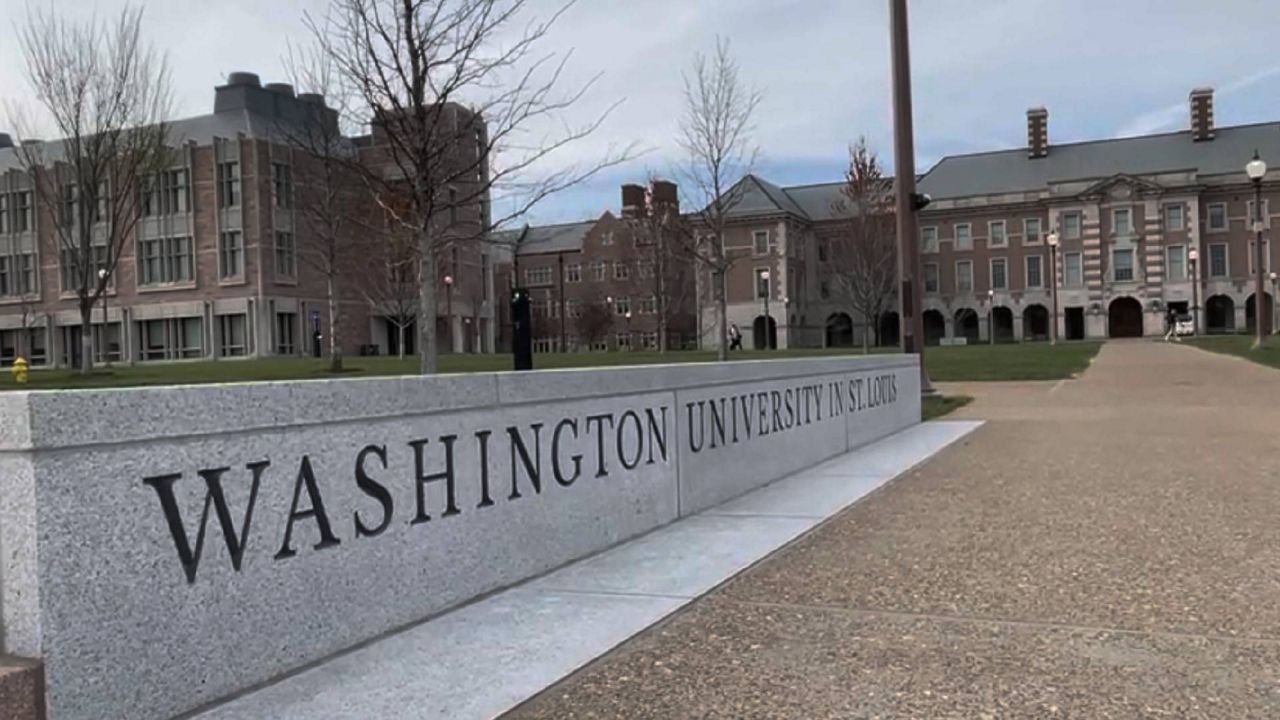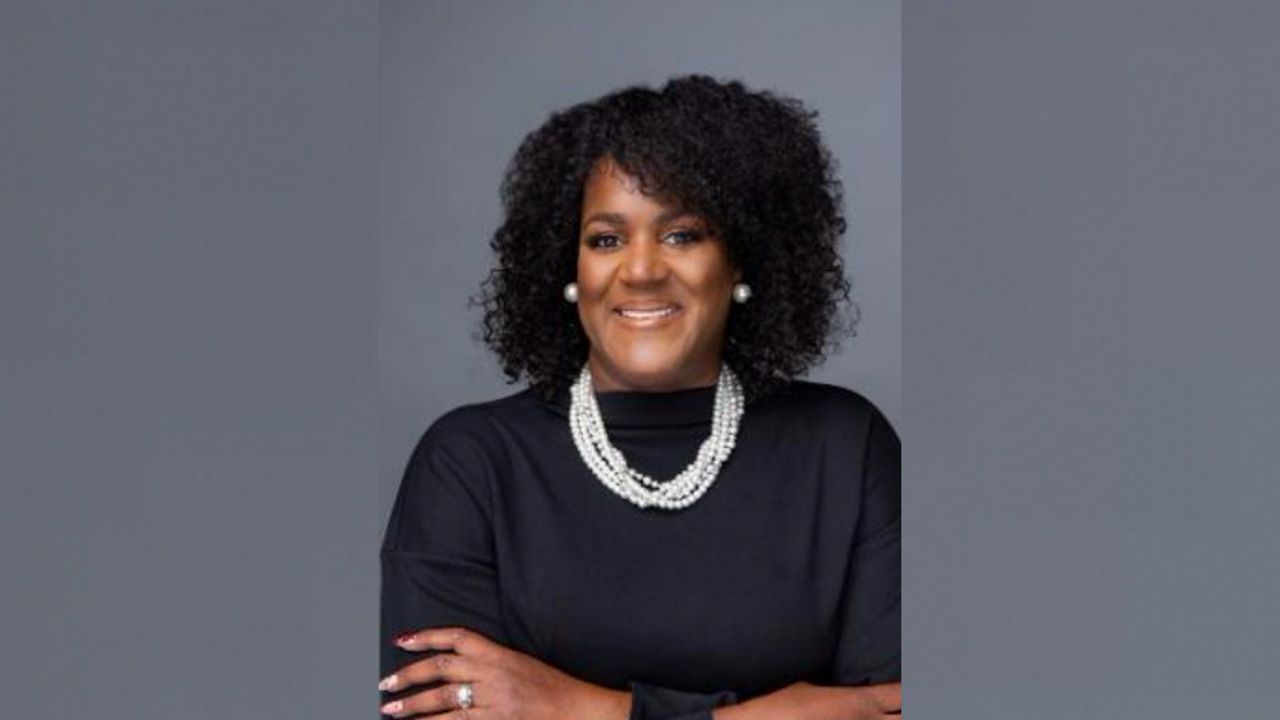ST. LOUIS – Missouri is one of the top ten states when it came to the number of book bans according to a recent report by PEN America. There have been dozens of books challenged or pulled from the shelves at Missouri school districts in the last year, and it is part of a growing national trend that has the American Library Association (ALA) reporting it is set to see more book challenges in 2022 than the record set in 2021.
In Missouri, one district was sued over the removal of books, and a new state law (SB 775) has set guidelines about providing “explicit sexual materials” to a student had districts reviewing collections to be in compliance.

Bans happened in 32 states with Texas, Florida, Pennsylvania and Tennessee having the most incidents according to PEN America. Missouri came in ninth with 27 banned titles.
PEN America, a group working to protect free expression, created an Index of School Book Bans between July 2021 and June 2022. Books from five St. Louis-area school districts and one in southwest Missouri showed up on the list. Most of those titles have been retained and are still on library shelves.
Its report found over 2,500 instances of individual books being banned, affecting 1,648 unique book titles. The ALA found that between January 1 and August 31, 2022, there were 681 documented attempts to ban or restrict library resources, and 1,651 unique titles. In all of 2021, there were 729 reported attempts to censor resources, the highest number since it began compiling lists over 20 years ago.
Both ALA and PEN America point to organized efforts behind a large number of these book bans. PEN America also identified 50 groups involved in pushing for book bans across the country, some with local or regional chapters. These parent and community groups have played a role in at least half of the book bans enacted across the country during the 2021-2022 school year.
“The unprecedented number of challenges we’re seeing already this year reflects coordinated, national efforts to silence marginalized or historically underrepresented voices and deprive all of us – young people, in particular – of the chance to explore a world beyond the confines of personal experience,” said ALA President Lessa Kananiʻopua Pelayo-Lozada in a press release.
Its report also found most banned titles included books that have been targeted for their LGBTQ+ content, their content related to race and racism, their sexual content - or all three.
Here is Pen America’s list of the most banned titles during the 2021-2022 school year:
Gender Queer: A Memoir by Maia Kobabe (41 districts)
All Boys Aren’t Blue by George M. Johnson (29 districts)
Out of Darkness by Ashley Hope Pérez (24 districts)
The Bluest Eye by Toni Morrison (22 districts)
The Hate U Give by Angie Thomas (17 districts)
Lawn Boy by Jonathan Evison (17 districts)
The Absolutely True Diary of a Part-Time Indian by Sherman Alexie (16 districts)
Me and Earl and the Dying Girl by Jesse Andrews (14 districts)
Crank by Ellen Hopkins (12 districts)
The Kite Runner by Khaled Hosseini (12 districts)
l8r, g8r by Lauren Myracle (12 districts)
Thirteen Reasons Why by Jay Asher (12 districts)
Beloved by Toni Morrison (11 districts)
Beyond Magenta: Transgender Teens Speak Out by Susan Kuklin (11 districts)
Drama: A Graphic Novel by Raina Telgemeier (11 districts)
Looking for Alaska by John Green (11 districts)
Melissa by Alex Gino (11 districts)
This Book Is Gay by Juno Dawson (11 districts)
This One Summer by Mariko Tamaki and Jillian Tamaki (11 districts)
PEN America did point out in its report that its list represents documented cases of book bans reported directly to the group and/or covered in the media. The group considers a book banned even if it was only temporarily restricted or under investigation. The report’s authors believe there are likely additional bans that have not been reported.
Local Districts
Spectrum News reached out to the local school districts in the report to confirm the information. A Rockwood School District spokesperson said the three books listed in the report were challenged but ultimately retained, some with restrictions. The district did receive 15 challenges during the school year, but no books were removed. However, the district did remove 22 titles from its libraries due to Missouri SB 775, including Gender Queer, which was on the national list of most banned titles.
Lindbergh School District also responded to clarify the title included in PEN America’s list was challenged, yet retained with restrictions and was labeled “mature content for age level.” There were other challenges throughout last school year, but no books were banned. The district did say it reviewed its catalog due to SB 775 and to date has removed 17 titles, one of which
is on the most banned titles list.
The Wentzville School District was even sued over removing a book. The ACLU sued the district on behalf of two students after Toni Morrison’s “The Bluest Eye” was banned for high school libraries. The district reversed its decision and retained the book after facing criticism. There were several other books challenged during the school year according to PEN America, and only one is not currently in the district’s online library catalog.
Wentzville, Francis Howell, and FOX-C6 did not respond to our request for comment.
The St. Louis Public Library even released a list this week about the 20 books at risk of being banned in area schools. It came as part of National Book Ban week, where libraries across the country were encouraged to highlight increased censorship. Its list included several books challenged and retained in the area, as well as titles like “Flamer”, that the Francis Howell School District reports was one of 7 books it took off its shelves due to SB 775.








